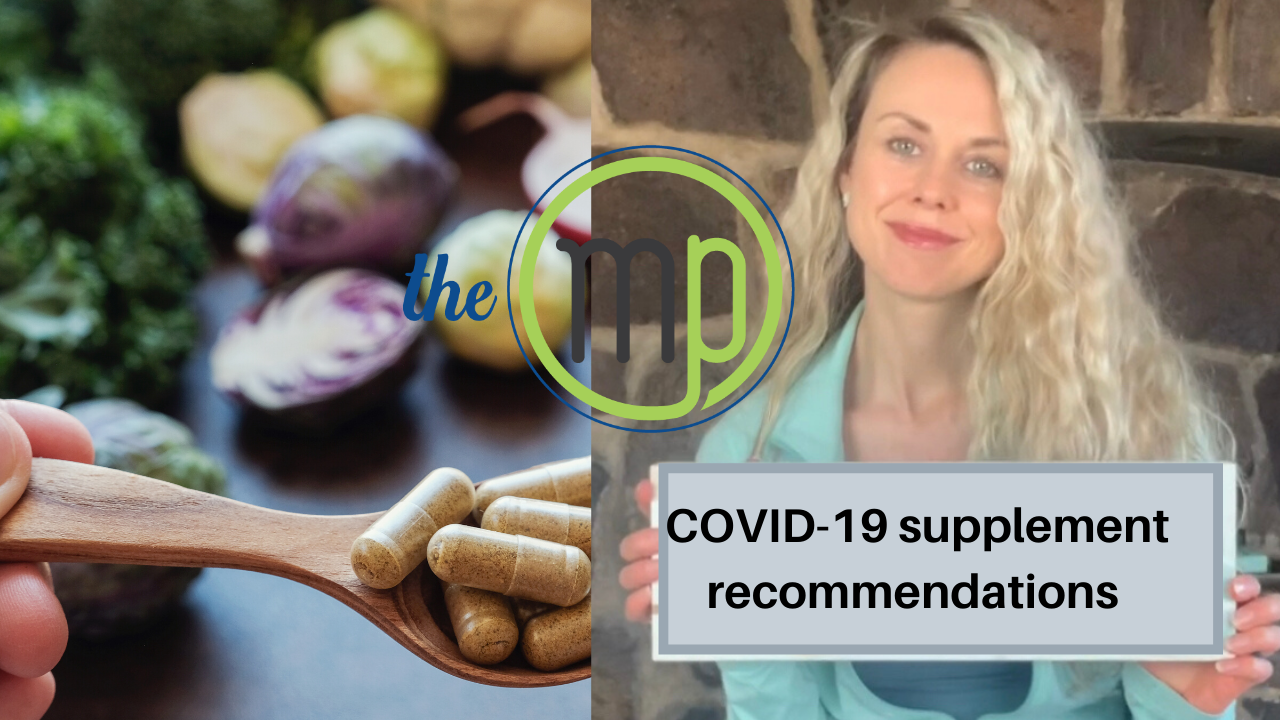Did you ever wonder what supplements you should be taking during this COVID-19 virus? I’ve had a lot of questions recently about what supplements to take to not only prevent illness but also fight off illness and boost your immunity. Although there are no vaccines to date for COVID-19, there is a ton of emerging research on different nutraceuticals and botanicals that can be used once again to not only prevent illness but to fight off illness. Let’s dive in.
1. Curcumin
Curcumin. This has been shown to reduce inflammation, as well as reduce the viral infection of COVID-19. It is beneficial to have black pepper with it, which enhances the bioavailability. The recommendation is 500 to 1000 milligrams twice a day.
2. Quercetin
This is a plant flavonoid that is found in many fruits and vegetables, and it has been shown to decrease viral growth. It is recommended to take 1000 milligrams twice a day orally.
3. Zinc
Through a large body of research, zinc has been shown to have antiviral properties. You would take this in any form of zinc, so it could be citrate, acetate, glycinate, picolinate, or gluconate. You would take small doses of 30 to 60 milligrams throughout the day.
4. Vitamin D
This has been shown to reduce upper respiratory infections, decrease viral growth, as well as improve the overall immune system. This recommended dosage is 5000 international units daily.
5. Vitamin C
This can really play a huge role in immune defense, and it is actually being used in the hospitals treating COVID-19. Take one to three grams a day orally.
6. Vitamin A
Not only does it support the lining of the respiratory tract, but it also can contribute to reducing inflammation and supporting the immune system. You would take 10,000 to 25,000 international units daily.
7. N-acetyl-cysteine (NAC)
This can support the production of glutathione, which is one of our most powerful antioxidants. In addition to that, it also can reduce the severity of the flu. It is recommended to take 600-900 mg twice a day.
8. Melatonin
We know that during times of stress we are not getting the proper amount of sleep or the proper quality of sleep. Melatonin can help produce more restful sleep and can also reduce inflammation. You can take five to 20 milligrams before bedtime.
9. Elderberry
This has been used extensively in the prevention of the flu. In addition to that, it’s packed with vitamin C, antioxidants, and fiber. You can take 500 milligrams orally.
10. Resveratrol
This is a compound found in red grapes, and it has been shown in the lab to attack a relative virus of COVID-19. Resveratrol’s anti-inflammatory properties appear to play a significant role in accelerating the healing of organs such as the liver, lungs, intestines, and heart by slowing inflammation and swelling. It is recommended to take 100-150 milligrams twice a day.
11. Green tea or EGCG (epigallocatechin gallate)
This has been shown to reduce information and has also been known to affect the pathway that is consistent with the COVID-19 virus. You can either drink four cups of green tea daily or take 200 milligrams of the EGCG.
Summary
Of course, we know what all the precautions associated with COVID-19 are wearing masks, washing your hands, and participating in social distancing. However, you can also consider how you can optimize your immune system. If you do get this virus, you can potentially decrease the viral load, thereby changing the way that your body responds to it. Whether it is coming from foods, (check out 12 immune-boosting foods), or supplementation, this is a really good opportunity to do whatever you can to stay as healthy as possible. Of course, please don’t forget sleep hygiene, meditation, and movement!
If you’d like a ready-to-order list with high-grade supplements (that you can customize), email [email protected] with “supplements” in the subject line.
Reach out for a 15-minute FREE discovery session to see how we can help you on your journey.
For more content, make sure to subscribe to our YouTube channel here.
Other things that may interest you:
WHY DO YOU HAVE CRAVINGS | 4 reasons
Top 5 Vagus Nerve Hacks to Help You Relax and Restore
What To Eat To Improve Your Nerve Health | 10 NUTRIENTS
Source: Institute of Functional Medicine
Disclaimer: This is not intended to treat or diagnose. Please check with your physician or functional medicine practitioner to determine a specific plan.





